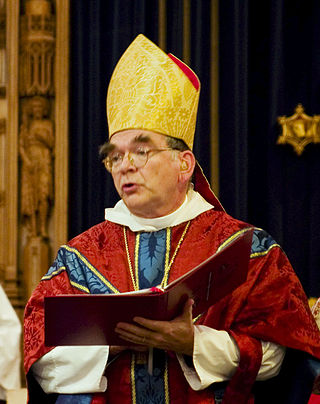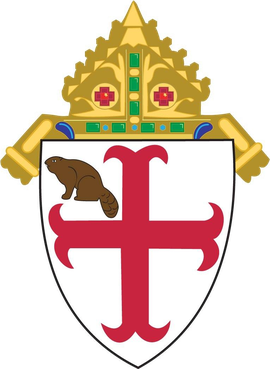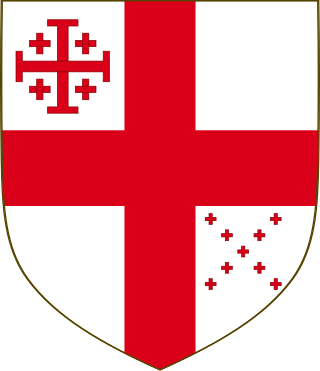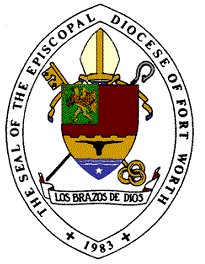The Continuing Anglican movement, also known as the Anglican Continuum, encompasses a number of Christian churches, principally based in North America, that have an Anglican identity and tradition but are not part of the Anglican Communion.

The Church of South India (CSI) is a united Protestant Church in India. It is the result of union of a number of Protestant denominations in South India that occurred after the independence of India.

Robert William Duncan is an American Anglican bishop. He was the first primate and archbishop of the Anglican Church in North America (ACNA) from June 2009 to June 2014. In 1997, he was elected bishop of the Episcopal Diocese of Pittsburgh. In 2008, a majority of the diocesan convention voted to leave the diocese and the Episcopal Church and, in October 2009, named their new church the Anglican Diocese of Pittsburgh. Duncan served as bishop for the new Anglican diocese until 10 September 2016 upon the installation of his successor, Jim Hobby.
The Anglican Episcopal Church (AEC) was a Continuing Anglican church consisting of parishes in Arizona, Alaska, and Florida served by a presiding bishop and several other clergy. The AEC was founded at St. George's Anglican Church in Ventura, California.
The Anglican realignment is a movement among some Anglicans to align themselves under new or alternative oversight within or outside the Anglican Communion. This movement is primarily active in parts of the Episcopal Church in the United States and the Anglican Church of Canada. Two of the major events that contributed to the movement were the 2002 decision of the Diocese of New Westminster in Canada to authorise a rite of blessing for same-sex unions, and the nomination of two openly gay priests in 2003 to become bishops. Jeffrey John, an openly gay priest with a long-time partner, was appointed to be the next Bishop of Reading in the Church of England and the General Convention of the Episcopal Church ratified the election of Gene Robinson, an openly gay non-celibate man, as Bishop of New Hampshire. Jeffrey John ultimately declined the appointment due to pressure.

The Episcopal Diocese of Albany is a diocese of the Episcopal Church covering 19 counties in northeastern New York state. It was created in 1868 from a division of the Episcopal Diocese of New York.

The United Episcopal Church of North America (UECNA) is a church in the Anglican tradition and is part of the Continuing Anglican movement. It is not part of the Anglican Communion.
The Diocese of the Great Lakes (DGL) was founded as a Continuing Anglican church body in the United States and Canada. More recently, it became a diocese of the United Episcopal Church of North America. Its worship centers and clergy are located in Michigan and New York.

The Anglican Church in North America (ACNA) is a Christian denomination in the Anglican tradition in the United States and Canada. It also includes ten congregations in Mexico, two mission churches in Guatemala, and a missionary diocese in Cuba. Headquartered in Ambridge, Pennsylvania, the church reported more than 1,000 congregations and more than 128,000 members in 2023. The first archbishop of the ACNA was Robert Duncan, who was succeeded by Foley Beach in 2014. In June 2024, the College of Bishops elected Steve Wood as the third archbishop of the ACNA. Authority was transferred to him during the closing Eucharist at the ACNA Assembly 2024 conference in Latrobe, Pennsylvania.

The Anglican Church in Central America is a province of the Anglican Communion, covering five sees in Central America.

William Howard Love is an American prelate. Love was the ninth bishop of the Episcopal Diocese of Albany, and he served in that role from 2007 until January 31, 2021. Beginning in April 2021, Love has served as Assistant Bishop of the Anglican Diocese of the Living Word.

The Episcopal Church (TEC), based in the United States with additional dioceses elsewhere, is a member church of the worldwide Anglican Communion. It is a mainline Protestant denomination and is divided into nine provinces. The presiding bishop of the Episcopal Church is Michael Bruce Curry, the first African American bishop to serve in that position. He will be replaced by Sean Rowe in November 2024.

The Episcopal Diocese of Fort Worth is a diocese of the Anglican Church in North America. The diocese comprises 56 congregations and its headquarters are in Fort Worth, Texas.
The following is a list of Anglican churches in the Americas.
The North American Anglican Conference (NAAC) was a federation of Continuing Anglican church bodies in the United States and Canada. It was founded on August 15, 2008, by an assembly of bishops, clergy, and laity gathered in Romulus, Michigan, for the purpose of ratifying the association's proposed statement of principles.
The Anglican Diocese of the Great Lakes is a diocese of the Anglican Church in North America since June 2010. It has 42 congregations in the American states of Illinois, Indiana, Kentucky, Michigan, New York, Ohio, Pennsylvania and West Virginia. It was previously the Anglican District of the Great Lakes of the Convocation of Anglicans in North America, since August 2008, which was a founding diocese of the Anglican Church in North America in June 2009.
Roger Copeland Ames is an American Anglican priest. He is the first bishop of the Anglican Diocese of the Great Lakes in the Anglican Church in North America, after being a suffragan bishop for the Convocation of Anglicans in North America. He is married and has two adult children and three grandchildren.
Ronald W. Jackson is an American former Anglican bishop. He was the second bishop of the Anglican Diocese of the Great Lakes in the Anglican Church in North America, from 28 April 2016 until his resignation in January 2020, for health reasons. He is married to Patricia, they have four adult children and six grandchildren. Jackson was removed from ever serving in ministry from the ACNA following his laicization in 2020.

John Engle Miller III is an American marine biologist and retired bishop of the Anglican Church in North America. He is a former Episcopal priest who played an active role in the Anglican realignment in the United States. Consecrated in 2008 to serve as a bishop in the Anglican Mission in the Americas, Miller later served as assisting bishop in the Gulf Atlantic Diocese and provided interim support during episcopal vacancies and leaves of absence in the Anglican Diocese of the Great Lakes and the Anglican Diocese of the Upper Midwest.









